Praise for Holistic Homesteading
If you want to live off the land and grow a regenerative homestead, this book is a great primer into essential steps: from siting your garden and understanding design principles to wild foraging and home preserves. Roxanne is full of goo d advice!
Zach Loeks , director of the Ecosystem Solution Institute and author of The Permaculture Market Garden and The Edible Ecosyste m Solution
In Holistic Homesteading , Roxanne Ahern lays out the why and the how of living a more grounded and meaningful existence through the simple, beautiful, everyday acts of home production. It was once commonplace for our ancestors to mark the days and the seasons through the production happening in the home: the flush of the summer garden, the work of storage in autumn, the renewal and abundance of spring, the simple dance between human culture and animal husbandry and the delicate care of the plant world. Holistic Homesteading invites us back in to participate in this most essential and meaningful of human tasks: the work and joy of making a living from the land and reveling in its a bundance.
Dr. Ashley Colby , environmental sociologist, director of Rizoma Field School, and author of Subsistence Agriculture in the US: Reconnecting to Work, Nature and Community
Holistic Homesteading offers a wide array of information on finding land, starting a homestead, and enjoying the rhythms of a land-based lifestyle. Filled with practical tips and important things to consider along the way, its a perfect book for inspiration at any point in your homesteading journey.
Tao Orion , Resilience Permaculture Design, LLC, author of Beyond the War on Invasive Species: A Permaculture Approach to Ecosystem R estoration
Holistic
Homesteading
A Guide to a Sustainable
and Regenerative
Lifestyle
By Roxanne Ahern
-01.jpg)
Coral Gables, FL
Copyright 2022 by Roxanne Ahern.
Published by Yellow Pear Press, a division of Mango Media Inc.
Cover Design & Art Direction: Morgane Leoni
Cover Photo: valya82/Adobe Stock
Layout & Design: Katia Mena
Images used under license of Adobe Stock
Mango is an active supporter of authors rights to free speech and artistic expression in their books. The purpose of copyright is to encourage authors to produce exceptional works that enrich our culture and our open society.
Uploading or distributing photos, scans or any content from this book without prior permission is theft of the authors intellectual property. Please honor the authors work as you would your own. Thank you in advance for respecting our authors rights.
For permission requests, please contact the publisher at:
Mango Publishing Group
2850 S Douglas Road, 4th Floor
Coral Gables, FL 33134 USA
For special orders, quantity sales, course adoptions and corporate sales, please email the publisher at or +1.800.509.4887.
Holistic Homesteading: A Guide to a Sustainable and Regenerative Lifestyle
Library of Congress Cataloging-in-Publication number: 2022939088
ISBN: (print) 978-1-64250-995-3, (ebook) 978-1-64250-996-0
BISAC category code GAR022000, GARDENING / Techniques
Printed in the United States of America
This book is for the microbes.
Their important work was unnoticed for most of human history, and we are currently only beginning to scratch the surface. Let them be a reminder to keep looking closer, and to never underestimate the power of things we do not yet u nderstand.
Table of Contents
Chapter 2Choosing Your Homestead:
Site and Scale
Chapter 3Gardening for an
Abundant Food Supply
Chapter 6Baking and Cooking
with Sourdough Culture

What is holistic homesteading? What makes it different than regular homesteading? What do I mean by a sustainable and regenerative lifestyle? To me the word homesteader describes anyone who works toward self-sufficiency. The definition need not be limited to folks who grow every bite of food they eat themselves and only wear things they make while living in a home they fashioned with their own hands. Although, if this is you, you have my unyieldin g respect.
A homesteader is a person who makes an effort to learn skills that will enable them to be more self-sufficient. This can manifest differently for different people based on their interests and abilities. A homesteader might want to grow and/or preserve food, build things, practice animal husbandry, learn how to butcher or cure meat, sew or crochet, the lis t goes on.
In our modern world, I do not believe that it is necessary to live on acreage to be a homesteader. There are suburban and urban homesteaders who live in subdivisions and apartments who are more capable than I am at many homestead-type skills. Inversely, many who own land are still perfectly content being completely reliant on supply chains entirely out of their control. Being a homesteader is not exclusive to the amount of land one has; instead, it is a mindset.
Now that the meaning of the term homesteader has been established, lets explore what is meant by the words holistic , sustainable , and regenerative . Holistic describes a way of looking at situations in which we take entire systems into account, rather than trying to understand them based on their isolated parts. Sustainable practices could continue without compromising the ability of future generations to meet their needs. Regenerate means to regrow, generate anew, or be reformed or reborn. In the last several generations (and some would argue since the beginning of human agriculture, but that debate is beyond the scope of this book), our planet and our bodies have been in a state of de generation. We have used methods that are reductionist and admittedly unsustainable. We have continuously tilled the earth for thousands of years, which has annihilated soil life and reduced the nutritional value of our food. More recently in human history we have taken to pouring pesticides, herbicides, and chemical fertilizers onto the soil. These chemicals have made their way into our bodies and have taken their toll. Not to mention the pollutants and chemicals in our water, air, and personal care products. The use of packaging and the amount of fuel that goes into simply transporting products from one place to another creates more pollution.
My homesteading journey began with personal health. I felt unwell and had a litany of health issues until I went on a retreat for a week around the age of twenty. They provided the food, all high-quality and healthy, and I felt like an entirely new person afterward. I became keenly aware of how the food I ate directly impacted the way I felt. This experience changed the course of my life. I began pursuing a career in holistic nutrition, which eventually led me to soil health because I quickly learned it didnt matter how many healthy foods are piled on a persons plate; food grown on soil barren of vitamins and minerals is also barren of vitamins and minerals. Animal products derived from animals raised on feedlots or in confinement houses and fed genetically modified grain and pumped full of antibiotics and growth hormones cannot nourish us in the same way as animals that are allowed to forage, express the characteristics innate to their species, and have access to fresh air and sunshine.
The holistic homesteader , then, works not just toward self-sufficiency but also toward restoring the health of their body and the earth. They work to rebuild the humus in the soil and the microbiomes in their body. They avoid products and practices harmful to other people and the environment. When confronted with an unsavory side effect of a practice they were using, they resolve to find or create a new practice. They see the natural world as a partner meant to be respected, not an adversary to overcome.

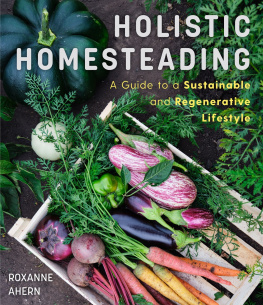
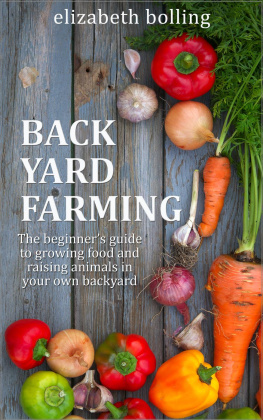
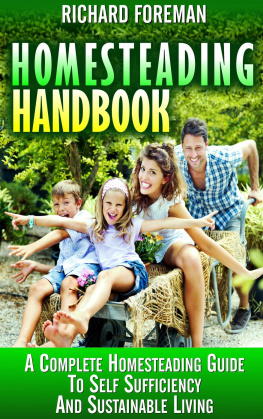
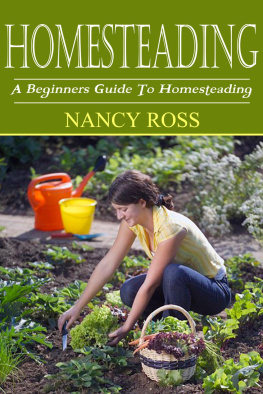

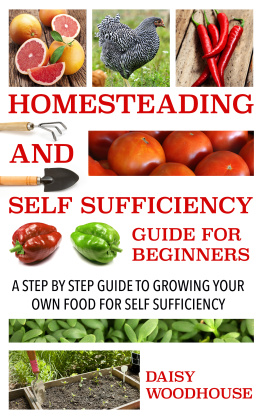

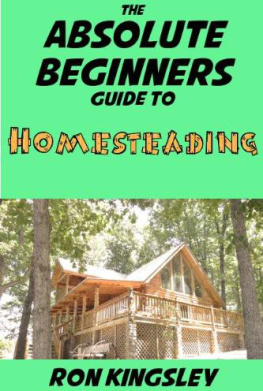
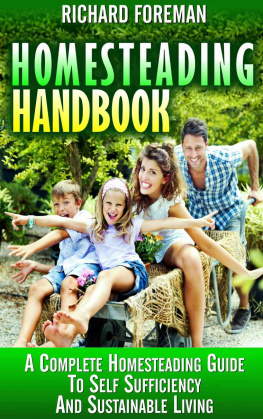
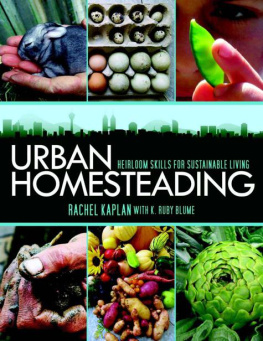

-01.jpg)
